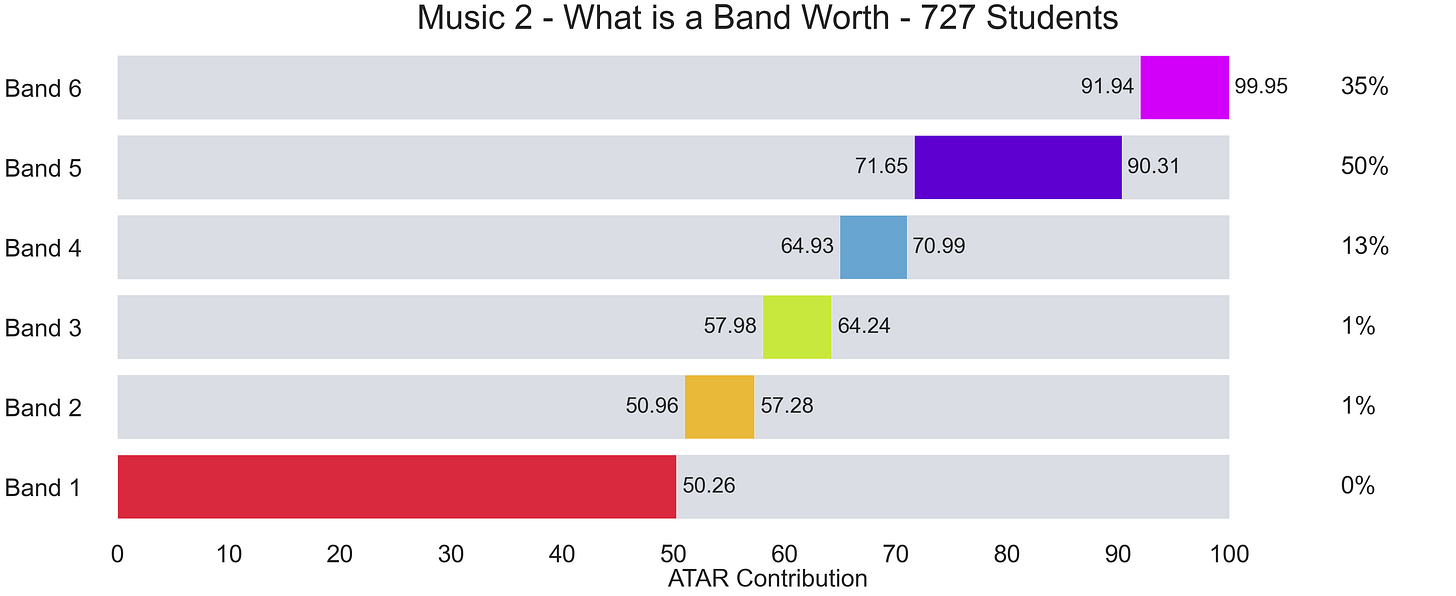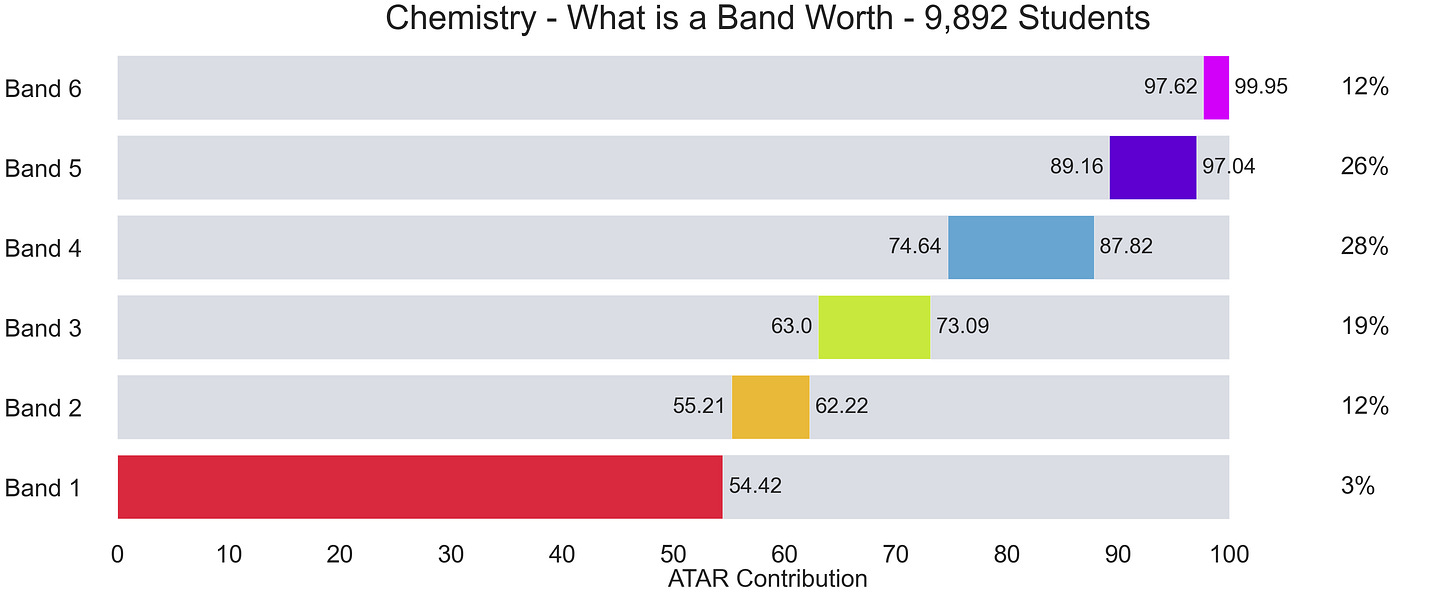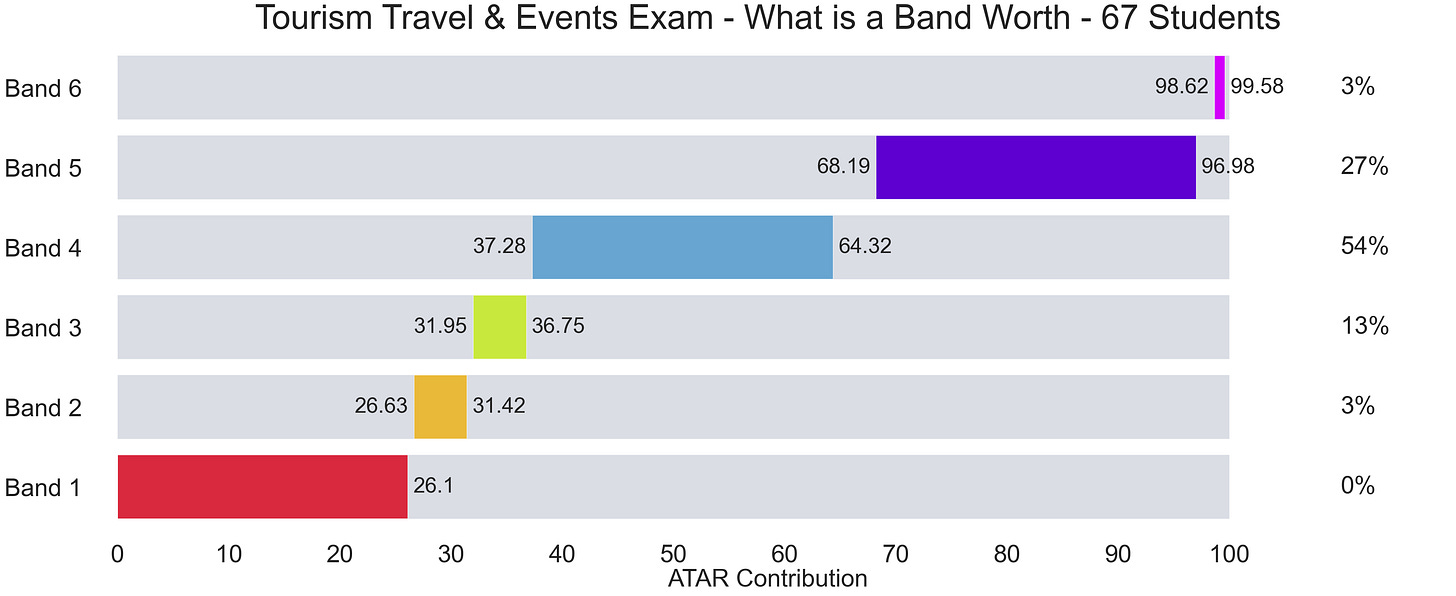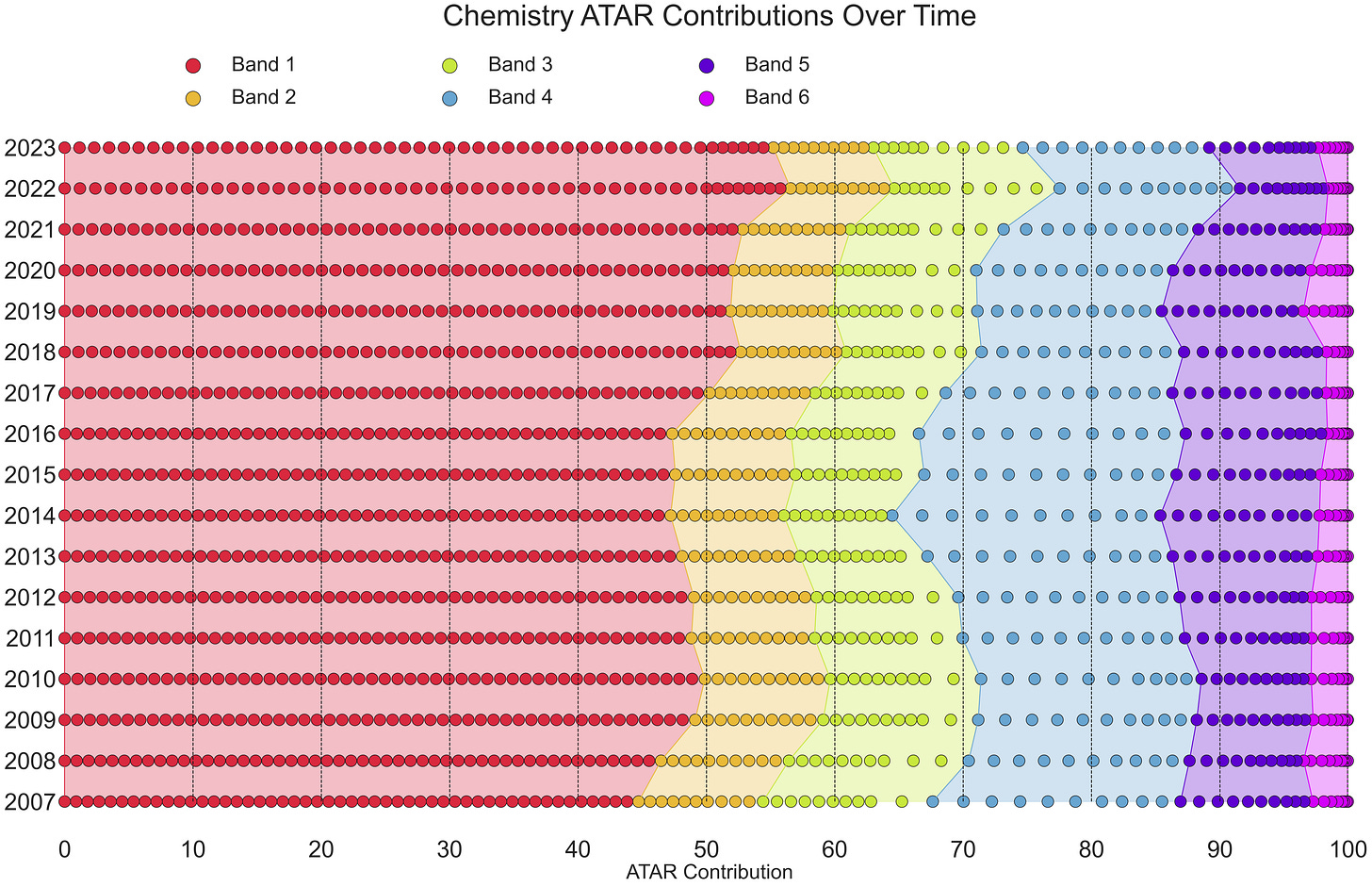HSC Marks vs ATARs
Understanding what's being compared is necessary to understanding the comparison
Talking about the HSC can be difficult outside of schools. Sometimes people ask me what I do and I doubt anyone gets it when I try to articulate it a little. That’s understandable. I doubt I understand what people outside of education do just from a sentence or two trying to summarise it.
The same is true when you’re talking about the HSC.
I want to try to explain how I think about scaling in the HSC. Not the process or the mechanics of it, but the relative measures that facilitate the value judgements.
There are two things that matter here.
How a subject scales is determined by the relative achievement of the students studying that subject in everything except that subject. OR…
How a subject scales is dependent on the achievement of the students in that course.
How a subject scales relative to HSC scores has NOTHING to do with the students in the course (or any other).
When we look at scaling in the HSC, we almost always look at it compared to HSC scores. This makes the most sense because the HSC is a reference point most people have at least some understanding of.
We get into trouble when we want to figure out what scales well and what doesn’t when the main reference point we have is HSC scores, though and we have to be careful about this.
How Subjects Scale
Let’s put extension subjects aside for now.
Music 2 is the 2 unit HSC subject with the highest scaled average. I think that, in scaling terms, it’s the highest scaling 2 unit subject in the HSC. The next highest average is Maths Advanced and then Chemistry. Although the average scaled score for Chemistry is lower than Maths Advanced, I think that in totality, it might be higher scaling then Maths. But it depends on the measures you value most and it’s open to interpretation.
It’s complicated.
How a subject scales, just in terms of scaling, is not, across the board, well understood, I don’t think. That’s ok. Not everyone needs to understand it.
But people are interested in it and the best attempts to explain it by anyone (myself included) use HSC scores as an anchoring point for understanding. Then it can be visualised and understood. But I fear that what’s being understood isn’t always being understood.
Here’s how Music 2, the highest scaling 2 unit subject, scales against HSC scores.
This chart does not indicate how Music 2 scales just in scaling terms. It only tells us how it scales compared to HSC scores and that has absolutely nothing to do with the students in Music 2. In fact, it has nothing to do with how Music 2 scales as a subject. It’s only showing Music 2 scaling relative to HSC bands.
What this chart DOES show us is how Music 2 scales compared to how NESA judge it and set the Band thresholds.
Here’s what the same chart looks like for Chemistry.
A low Band 6 in Chemistry is worth more to your ATAR than a low Band 6 in Music 2. This is despite Music 2 being a higher scaling subject than Chemistry. This is possible because one has nothing to do with the other.
Here’s what the same chart looks like for Tourism, Travel and Events Exam.
The average ATAR contribution to a student’s ATAR from Tourism in 2023 was about 30 points lower than in Music 2. But an HSC score of 90 was the most valuable 90 of any 2 unit subject as a contribution to student ATARs. This doesn’t tell us anything about high or low scaling. It tells us that, for whatever reason, a Band 6 in Tourism is aligned at such a high standard it’ll make your nose bleed, despite it being one of the lower scaling subjects in the HSC.
What Scales Best?
My point is that making a value judgement of what scales well and what doesn’t is fraught. A low Band 6 in Chemistry is worth more to your ATAR than a low Band 6 in Music 2. But does Chemistry scale better than Music 2? No. Does Music 2 scale better than Chemistry? No. It does scale higher. But better? I don’t think so.
The most valuable Band 6 threshold in 2023 was in Tourism, Travel and Events Exam. This isn’t indicative of how the subject scales. it’s indicative of the academic standard set by NESA to cross the Band 6 threshold. There are some VET subjects I don’t think are treated well by the band and alignment system. But part of the point of the whole thing is that each subject gets to set its own standard. And they do.
Why Does this Matter?
It makes sense to anchor our understanding of scaling to HSC scores. When we do that, we get a window into what’s happening when the band system is determined each year. Since the examination of the most recent Stage 6 Chemistry syllabus, the difficulty to achieve a Band 6 in Chemistry increased until 2022, then in 2023 it dropped back a little. It’s possible to feel like this is true, but I’m pretty sure it’s true because of what’s been happening in scaling in Chemistry.
What I can’t do, however, is take how Chemistry scales compared to HSC scores and make any value judgements about the cohort. I just need more information for this. And it’s out there, but it’s harder to find than is included in most conversations that happen around this.
So What Scales Well?
It’s complicated. It’s situation specific. it is, more often than not, too simplistic a question to ask. If a student is concerned about their ATAR, and a significant number are, a better question is ‘What do I need to reach my goal and am I well prepared to get there?’ This should be asked, subject by subject, within a student’s range of interest and a school’s offering of subjects and should be carefully and thoughtfully put together by discerning teachers and school leaders who know the students well.
I love this conversation and I’d love to have it more. Not because I’m in love with the HSC or the ATAR. I’m in love with education and this is the system we’re in. It’s understandable, but no one can get every part of it. We need to lean on each other to appreciate and accommodate the complexity and nuance required to do it well.
But publications like the SMH can go ahead and get stuffed. The way they all report on this stuff is irresponsible.





